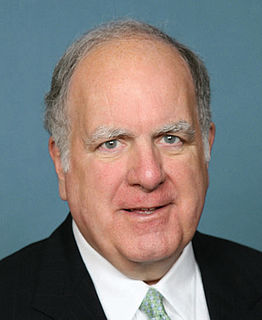A Quote by Ed Balls
Related Quotes
When my husband was president, we went from a $300 billion deficit to a $200 billion surplus and we were actually on the path to eliminating the national debt. When President Obama came into office, he inherited the worst economic disaster since the Great Depression. He has cut the deficit by two-thirds.
The climate, financial and national security crises are all connected. They share the same cause: Our [the USA's] absurd dependency on foreign oil. As long as we need to spend billions of dollars each year to buy foreign oil from state-run oil companies in the Persian Gulf, our problems of a trade deficit, a budget deficit and a climate crisis will persist.
Our practical choice is not between a tax-cut deficit and a budgetary surplus. It is between two kinds of deficits: a chronic deficit of inertia, as the unwanted result of inadequate revenues and a restricted economy; or a temporary deficit of transition, resulting from a tax cut designed to boost the economy, increase tax revenues, and achieve -- and I believe this can be done -- a budget surplus. The first type of deficit is a sign of waste and weakness; the second reflects an investment in the future.
A democratically governed national fracking fund should be set up, perhaps similar to what Norway and Alaska have. Areas of drilling should be rented to companies through public tender, with or without subsidies, and a rising share of profits beyond a negotiated upper limit should be deposited in the national capital fund.
































